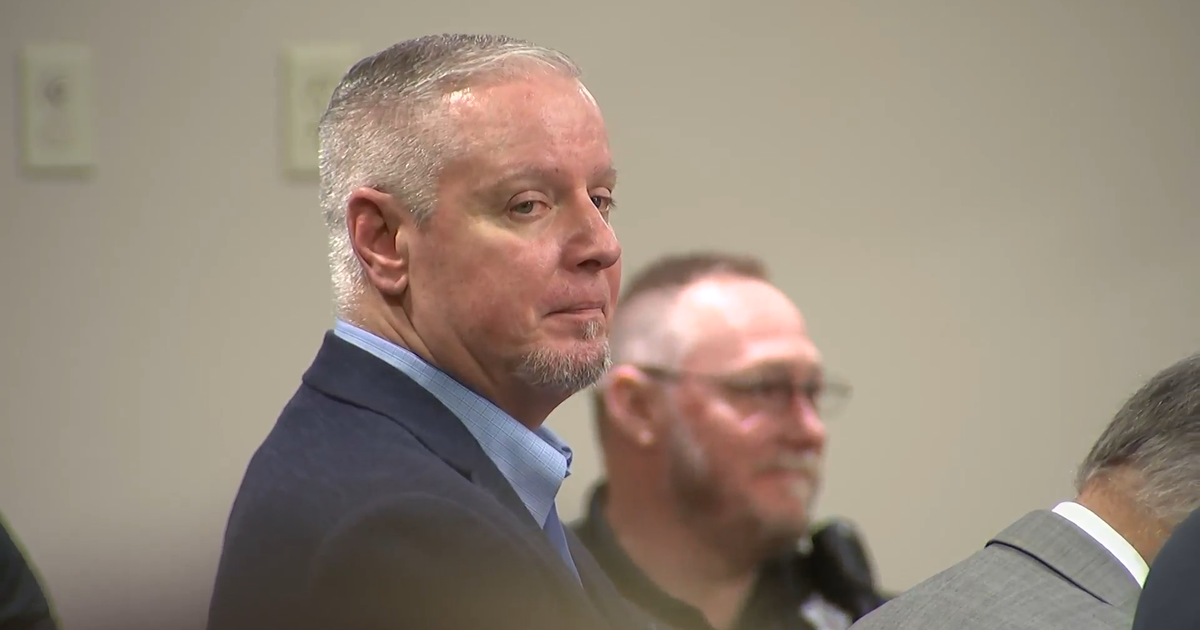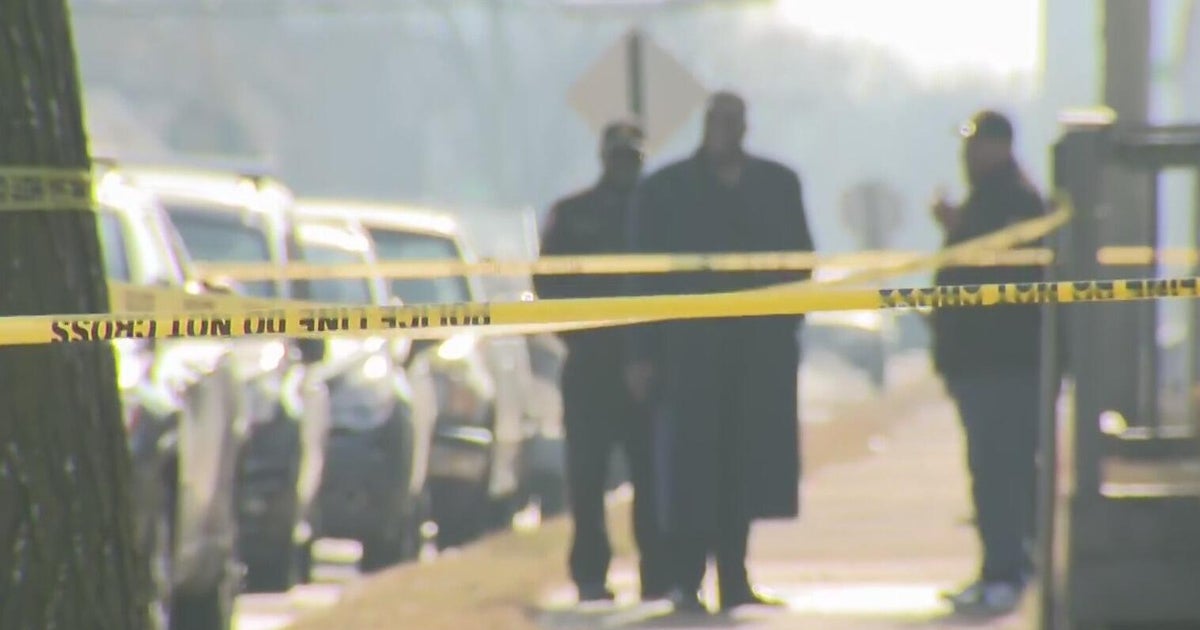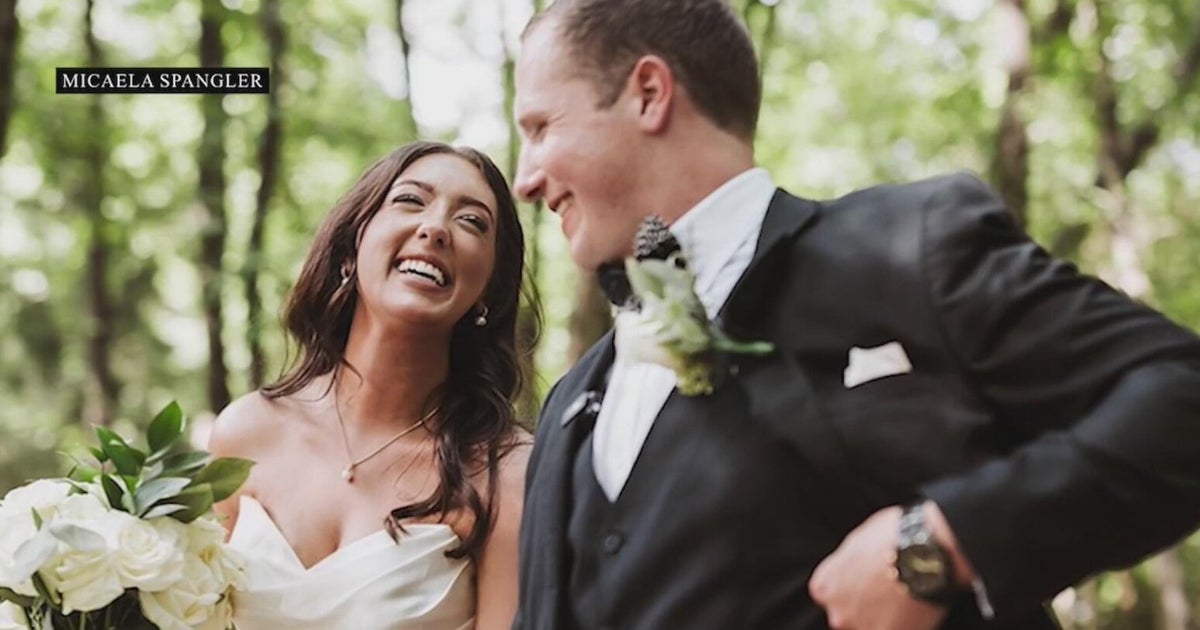Oral Arguments Set For Man In Online Suicide Case
MINNEAPOLIS (AP) -- Once a week, Deborah Chevalier makes the short trip from her home in Canada to the cemetery where her daughter is buried, tenderly clears the snow from her grave and sits down to remember.
It's a way to stay close to her Nadia, who drowned herself in 2008, believing she had entered into a suicide pact with a female nurse online. But prosecutors say Nadia Kajouji was actually communicating with William Melchert-Dinkel, a Minnesota man and former nurse who had no intention of killing himself but enjoyed preying on depressed people, telling police he did it for the "thrill of the chase."
Melchert-Dinkel, 48, of Faribault, has been charged with two counts of aiding suicide, each carrying a maximum sentence of 15 years in prison.
On Thursday, he told a southern Minnesota judge that he wanted to keep his not guilty plea but accepted evidence gathered in the case and waived his right to a jury trial. Rice County District Court Judge Thomas Neuville said he would decide Melchert-Dinkel's guilt or innocence based on evidence submitted by prosecutors and the defense.
Neuville took into evidence a binder containing 10 compact discs and 958 pages of police reports, transcripts, copies of e-mails and other computer evidence. He said he'll hear oral arguments from both sides at a hearing next week, then he'll have 20 days to make his decision.
Thursday's development included a slight change in legal tactics: Melchert-Dinkel will now be able to appeal any conviction as well as make appeals on pretrial issues. Neuville said attorneys told him before the hearing that Melchert-Dinkel wanted that option.
The defense has argued that the online activities were protected speech, the victims were predisposed to suicide and Melchert-Dinkel's comments were not a factor in their deaths. It also claims Minnesota doesn't have proper jurisdiction to hear the case because the suicide victims lived in other countries.
After the hearing, Melchert-Dinkel's attorney said his client was "taking a leap of faith" that a judge would decide in Melchert-Dinkel's favor.
"While there isn't a dispute as to the facts themselves, the dispute comes into the interpretation of the facts, and whether there is a nexus to say that a crime occurred," Melchert-Dinkel's attorney Terry Watkins said after the hearing. He said he expects a not guilty verdict.
Rice County Attorney Paul Beaumaster said he believes Melchert-Dinkel violated state laws against aiding suicide.
Chevalier said even if Melchert-Dinkel is convicted, it will not be enough for the man she believes pushed her daughter over the edge.
"I do not believe that any punishment they will put on him will be what he deserves," she said.
Prosecutors say Melchert-Dinkel was obsessed with suicide and hanging and sought out potential victims on the Internet. When he found them, prosecutors say, he posed in chat rooms and in e-mails as a woman, using names like "Li dao," "Cami," or "falcon girl." He feigned compassion and offered step-by-step instructions on how they could kill themselves.
Prosecutors say he acknowledged participating in online chats about suicide with up to 20 people and entering into fake suicide pacts with about 10 people, five of whom he believed killed themselves. He is charged in two deaths, that of 18-year-old Kajouji, of Brampton, Ontario, who jumped into a river in 2008; and 32-year-old Mark Drybrough, of Coventry, England, who hung himself in 2005.
"He is, in my mind, a murderer," Chevalier said. "His intent was to cause harm. His intent was to see their deaths."
Chevalier said she knew her daughter was going through a difficult time -- she had suffered a miscarriage and the man involved wasn't speaking to her.
According to information provided by prosecutors, Kajouji went online on March 1, 2008, saying she wanted to commit suicide but was afraid of failing. Five days later, she participated in two online chats with "Cami" -- who prosecutors say was actually Melchert-Dinkel, claiming to be a 31-year-old emergency room nurse in Minneapolis.
During the chats, Kajouji said she planned on the following Sunday to jump off a bridge into a frozen river while wearing ice skates, to make her death look like an accident. Cami suggested hanging instead and promised that if Kajouji's plan to jump on Sunday didn't work, the two of them would hang themselves together on Monday.
"We are together in this," Kajouji wrote.
"Yes I promise, Monday will be my day," Cami replied. In those chats detailed in court documents, Cami wrote about feeling "really suicidal" and wanting to die but waiting to see if Kajouji's jump was a success. "im just tryin to help you do what is best for you not me" Cami wrote.
Police in Ottawa say Kajouji disappeared on March 9, 2008, after telling her roommate she was going ice skating. Her body was pulled from the Rideau River six weeks later.
Chevalier said she'll never know if her daughter might have committed suicide on her own, but noted that Nadia was doing all the right things -- seeing a counselor and taking medication. She thinks her daughter went online as a plea for help.
"If she didn't have someone pushing her in the other direction, I think she would've been pulled out of it," she said.
An ocean away, another mother has also been watching Melchert-Dinkel's case. Elaine Drybrough's son, Mark, hung himself in 2005 after prosecutors say he got some detailed instructions from Melchert-Dinkel online, who was posing as a woman named Li dao.
Elaine Drybrough knew her son was depressed. She used to speak with him on the phone every day. Doctors and nurses went to his house to check on him, and he had been prescribed some medication.
"We could see he was in trouble -- but this man was leading him in a different direction, and we didn't know about it," Elaine Drybrough said.
According to court documents, Mark Drybrough posted a message in an Internet chat room at one point, asking if anyone had instructions on how to hang oneself without access to something high.
On July 1, 2005, he got an e-mailed response from "Li dao," who said if a person is less than 6 feet tall, "you can easily hang from a door using the knob" on one side "to tie the rope to, sling it over the top of the door, attach the noose or loop to yourself and then step off and hang successfully."
Just four days before his death, Drybrough wrote that he was scared and "holding on to the hope that things might change." He also told Li dao, "I admire your courage, I wish I had it."
(© Copyright 2011 The Associated Press. All Rights Reserved. This material may not be published, broadcast, rewritten or redistributed.)







